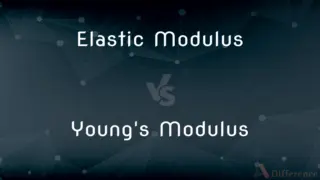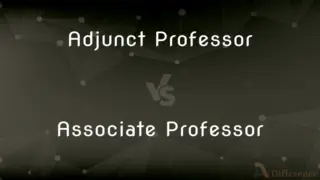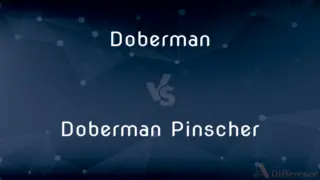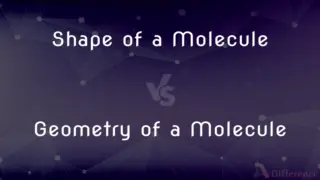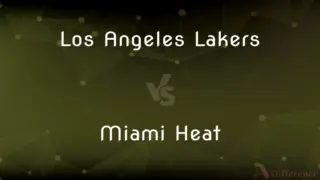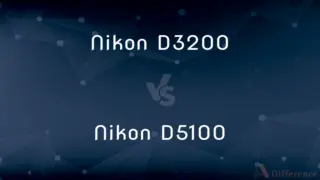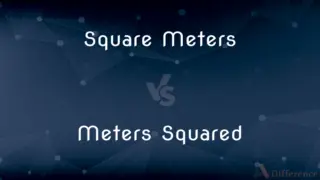Disguise vs. Masquerade — What's the Difference?
By Tayyaba Rehman — Published on October 20, 2023
Disguise entails altering appearance to conceal identity or nature. Masquerade involves presenting oneself falsely or participating in social events with masks and costumes.
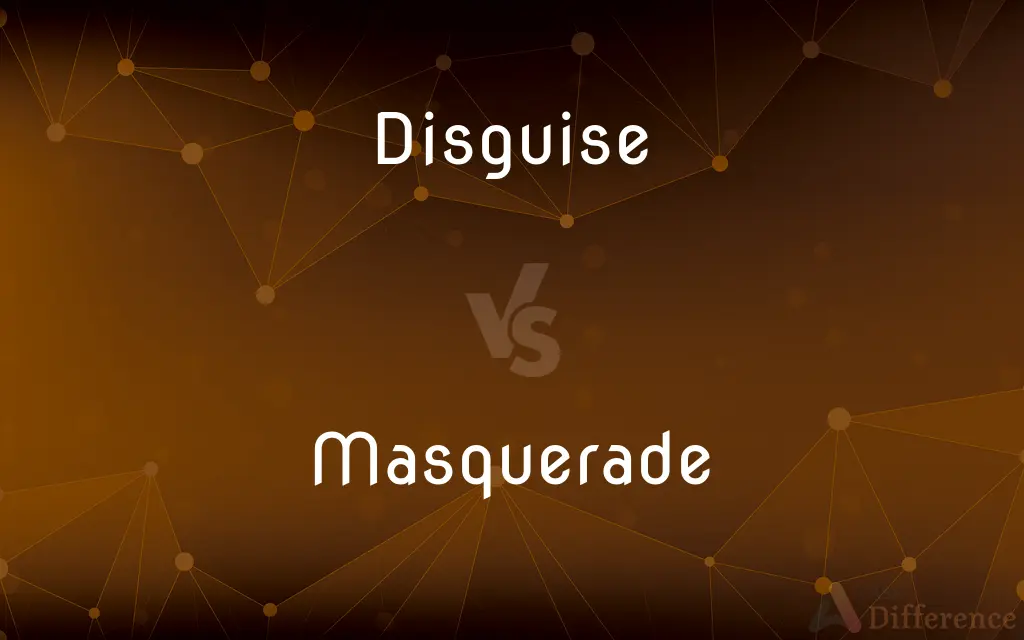
Difference Between Disguise and Masquerade
Table of Contents
ADVERTISEMENT
Key Differences
Disguise and Masquerade, while somewhat interchangeable, have distinct usages in English. "Disguise" generally pertains to the act of changing one’s appearance to conceal their identity. This change could be through clothes, makeup, or other means. Conversely, "Masquerade" can allude to both a deceptive show or an event where attendees wear masks and costumes.
The usage of Disguise often encompasses a broader array of contexts and purposes. Disguises can be utilized for various purposes, such as protection, anonymity, or to perform a covert act. Masquerade, on the other hand, frequently points towards social and recreational activities, especially ones involving dressing up, although it can also refer to a pretense.
Exploring Disguise and Masquerade through a historical lens sheds light on their distinct applications. Disguise has been utilized throughout history in espionage and subterfuge, changing one’s appearance to mislead and operate undercover. Masquerades historically were social events, parties where guests would wear masks and luxuriant costumes to conceal their identities for entertainment and intrigue.
In literature and art, Disguise is often employed as a plot device, allowing characters to navigate scenarios incognito, achieving goals without recognition. Masquerade, however, might be used in a more metaphorical sense to represent facades that individuals or societies maintain, or quite literally in describing festive gatherings where individuals adorn masks and costumes.
Comparison Chart
Definition
Alters appearance to conceal identity.
A deceptive show or a festive gathering with masks.
ADVERTISEMENT
Purpose
Typically aims for concealment or anonymity.
Could be recreational (event) or represent deception or pretense.
Usage
Can be used in a wide range of contexts.
Often limited to social events or describing deception.
Connotation
Can be neutral, positive, or negative depending on context.
Could suggest enjoyment (event) or negative (deception).
Historical Role
Used in espionage, warfare, and safety.
Associated with social events and, metaphorically, with deception.
Compare with Definitions
Disguise
Disguise involves altering one's appearance to hide identity or characteristics.
The spy used a disguise to blend into the crowd unnoticed.
Masquerade
Masquerade implies engaging in an act of pretending or imitation.
Some plants have the ability to masquerade as others to avoid being eaten.
Disguise
Disguise can mean to conceal the true nature or state of something.
He used humor to disguise his true feelings about the situation.
Masquerade
Masquerade can involve feigning an identity or role for deceptive purposes.
His act of kindness was merely a masquerade to gain her trust.
Disguise
Disguise may be used to mask or obfuscate the presence of something.
The frosting was used to disguise the burnt flavor of the cake.
Masquerade
Masquerade can refer to a party or assembly where participants wear masks and costumes.
They met at a lavish masquerade ball, where everyone was adorned in extravagant attire.
Disguise
Disguise can involve using subterfuge or misdirection to conceal intentions.
The decoy was a disguise to distract from the team’s real plan.
Masquerade
Masquerade can mean to live under a false show or pretense.
She did not want to masquerade as happy when she felt so miserable inside.
Disguise
To modify the manner or appearance of (a person, for example) in order to prevent recognition
Disguised himself as a guard and escaped.
Masquerade
A costume party at which masks are worn; a masked ball. Also called masque.
Disguise
To make indistinct or difficult to perceive
Disguised the bad taste of the medicine with lemon syrup.
Masquerade
A costume for such a party or ball.
Disguise
To conceal or obscure by dissemblance or false show; misrepresent
Disguise one's true intentions.
Masquerade
A disguise or false outward show; a pretense
A masquerade of humility.
Disguise
Clothes or accessories worn to conceal one's true identity.
Masquerade
An involved scheme; a charade.
Disguise
Appearance that misrepresents the true character of something
A blessing in disguise.
Masquerade
To wear a mask or disguise, as at a masquerade
She masqueraded as a shepherd.
Disguise
A pretense or misrepresentation
His repeated references to his dangerous hobbies were only a disguise to cover up his insecurity.
Masquerade
To go about as if in disguise; have or put on a deceptive appearance
The stowaway masqueraded as a crew member.
Disguise
Material (such as clothing, makeup, a wig) used to alter one’s visual appearance in order to hide one's identity or assume another.
A cape and moustache completed his disguise.
Masquerade
An assembly or party of people wearing (usually elaborate or fanciful) masks and costumes, and amusing themselves with dancing, conversation, or other diversions.
I was invited to the masquerade party at their home.
Disguise
(figuratively) The appearance of something on the outside which masks what’s beneath.
Masquerade
The act of wearing a mask or dressing up in a costume for, or as if for, a masquerade ball.
Disguise
The act or state of disguising, notably as a ploy.
Any disguise may expose soldiers to be deemed enemy spies.
Masquerade
(figuratively) An act of living under false pretenses; a concealment of something by a false or unreal show; a disguise, a pretence; also, a pretentious display.
Disguise
(archaic) A change of behaviour resulting from intoxication, drunkenness.
Masquerade
(figuratively) An assembly of varied, often fanciful, things.
Disguise
(transitive) To change the appearance of (a person or thing) so as to hide, or to assume an identity.
Spies often disguise themselves.
Masquerade
(fandom) A cosplay event at which costumed attendees perform skits.
Disguise
To transform or disfigure, to change the appearance of in general.
Masquerade
(obsolete) A dramatic performance by actors in masks; a mask or masque.
Disguise
(transitive) To avoid giving away or revealing (something secret); to hide by a false appearance.
He disguised his true intentions.
Masquerade
A Spanish entertainment or military exercise in which squadrons of horses charge at each other, the riders fighting with bucklers and canes.
Disguise
To dress in newfangled or showy clothing, to deck out in new fashions.
Masquerade
(intransitive) To take part in a masquerade; to assemble in masks and costumes; (loosely) to wear a disguise.
I’m going to masquerade as an old-fashioned pilot. What are you going to dress up as?
Disguise
To dissemble, to talk or act falsely while concealing one’s thoughts.
Masquerade
To pass off as a different person or a person with qualities that one does not possess; also, to make a pretentious show of being what one is not.
He masqueraded as my friend until the truth finally came out.
Disguise
To affect or change by liquor; to intoxicate.
Masquerade
To conceal (someone) with, or as if with, a mask; to disguise.
Disguise
To change the guise or appearance of; especially, to conceal by an unusual dress, or one intended to mislead or deceive.
Bunyan was forced to disguise himself as a wagoner.
Masquerade
An assembly of persons wearing masks, and amusing themselves with dancing, conversation, or other diversions.
In courtly balls and midnight masquerades.
Disguise
To hide by a counterfeit appearance; to cloak by a false show; to mask; as, to disguise anger; to disguise one's sentiments, character, or intentions.
All God's angels come to us disguised.
Masquerade
A dramatic performance by actors in masks; a mask. See 1st Mask, 4.
Disguise
To affect or change by liquor; to intoxicate.
I have just left the right worshipful, and his myrmidons, about a sneaker of five gallons; the whole magistracy was pretty well disguised before I gave them the ship.
Masquerade
Acting or living under false pretenses; concealment of something by a false or unreal show; pretentious show; disguise.
That masquerade of misrepresentation which invariably accompanied the political eloquence of Rome.
Disguise
A dress or exterior put on for purposes of concealment or of deception; as, persons doing unlawful acts in disguise are subject to heavy penalties.
There is no passion which steals into the heart more imperceptibly and covers itself under more disguises, than pride.
Masquerade
A Spanish diversion on horseback.
Disguise
Artificial language or manner assumed for deception; false appearance; counterfeit semblance or show.
That eye which glances through all disguises.
Masquerade
To assemble in masks; to take part in a masquerade.
Disguise
Change of manner by drink; intoxication.
Masquerade
To frolic or disport in disquise; to make a pretentious show of being what one is not.
A freak took an ass in the head, and he goes into the woods, masquerading up and down in a lion's skin.
Disguise
A masque or masquerade.
Disguise was the old English word for a masque.
Masquerade
To conceal with masks; to disguise.
Disguise
An outward semblance that misrepresents the true nature of something;
The theatrical notion of disguise is always associated with catastrophe in his stories
Masquerade
A party of guests wearing costumes and masks
Disguise
Any attire that modifies the appearance in order to conceal the wearer's identity
Masquerade
A costume worn as a disguise at a masquerade party
Disguise
The act of concealing the identity of something by modifying its appearance;
He is a master of disguise
Masquerade
Making a false outward show;
A beggar's masquerade of wealth
Disguise
Make unrecognizable;
The herb disguises the garlic taste
We disguised our faces before robbing the bank
Masquerade
Take part in a masquerade
Disguise
Disguise can refer to an outfit or persona adopted to conceal one's identity.
For the mission, she donned a disguise that made her look like a scientist.
Masquerade
Pretend to be someone or something that you are not;
He is masquerading as the expert on the Internet
This silly novel is masquerading as a serious historical treaty
Masquerade
Masquerade involves presenting oneself as someone else or something one is not.
He decided to masquerade as a journalist to get into the event.
Common Curiosities
Can a "disguise" be used for protection?
Yes, disguises can be utilized to protect someone by concealing their identity or blending them into a context.
Can "Disguise" and "Masquerade" be used interchangeably?
While somewhat synonymous, "disguise" typically refers to altering one’s appearance while "masquerade" can imply putting on a deceptive front or refer to a specific social event.
Is "masquerading" always considered deceptive or negative?
Not always. "Masquerading" can imply deception, but it can also neutrally describe participating in an event where people wear masks and costumes.
What is the purpose of a "disguise" in literature or films?
Disguises in literature or films often enable characters to navigate situations without being recognized, enabling various plot developments.
Can "masquerade" be used as a verb?
Yes, "masquerade" can be a verb, describing the act of pretending to be someone else or presenting oneself in a deceptive manner.
Is a "masquerade" always a physical event?
No, "masquerade" can also metaphorically describe deceptive appearances or actions.
Can "disguise" be used in a non-physical sense?
Yes, "disguise" can metaphorically describe concealing true intentions, feelings, or situations.
Does a "masquerade" always involve masks?
Traditionally, yes. A masquerade typically involves wearing masks, but it may sometimes be used more loosely to describe costumed events.
Can "disguise" also refer to hiding the presence of an object or a fact?
Yes, "disguise" can also refer to obscuring an object or fact, making it unrecognizable or concealed.
Can a "disguise" be used for entertainment, such as in theater or performance art?
Yes, disguises are often used in entertainment to allow performers to adopt different roles or to surprise the audience.
How does a "disguise" function in the animal kingdom?
In nature, disguises (camouflage or mimicry) often protect creatures by concealing them from predators or prey.
Is "masquerade" used in specific cultural or historical contexts?
Yes, "masquerade" can refer to specific masked balls in particular historical or cultural settings, especially within European history.
Can "masquerade" imply a degree of formality or extravagance?
Often yes, especially when referring to events, "masquerade" might imply a formal and extravagant gathering with masks and costumes.
Can disguises involve psychological or behavioral changes?
Yes, disguises can also encompass changes in behavior, speech patterns, or mannerisms to fully conceal one’s identity.
Is it common to use "masquerade" in everyday speech?
It's relatively common, used either to describe a deceptive act or literal events involving costume wearing.
Share Your Discovery
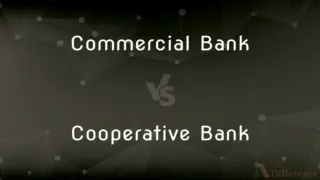
Previous Comparison
Commercial Bank vs. Cooperative Bank
Next Comparison
Address Bus vs. Data BusAuthor Spotlight
Written by
Tayyaba RehmanTayyaba Rehman is a distinguished writer, currently serving as a primary contributor to askdifference.com. As a researcher in semantics and etymology, Tayyaba's passion for the complexity of languages and their distinctions has found a perfect home on the platform. Tayyaba delves into the intricacies of language, distinguishing between commonly confused words and phrases, thereby providing clarity for readers worldwide.














